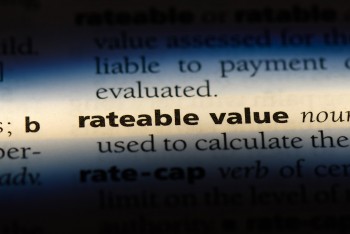Revaluation postponed
— 6 Aug 2020 10:26:53 by Philip Manning

Whilst no taxes are popular, business rates attract particular vitriol from most of the parties involved, especially from those liable to pay them and towards the professionals involved in assessing them. In fact, the Government is currently seeking opinions to assist its review of the business rates system, which is due to conclude next year.
My experience of the rating system goes back over 45 years, having started work as a Chartered Surveyor at Haringey Valuation Office in North London. At that time, residential properties were also required to pay rates, which remained the case until they were removed from the system and made subject to the highly unpopular Community Charge or Poll Tax, followed by the current system of Council Tax.
The contentious issue with a property tax such as rates is that it quickly becomes out of date. Council Tax is a good example, with residential properties assessed today on the basis of their market value in 1991, nearly 30 years ago! Although commercial property has been revalued more regularly, the period between revaluations has also been altered by the Government for various reasons.
The latest reason is a first for me, with the revaluation, originally planned for 2022 (five years after the last revaluation), postponed until 1 April 2023 due to the Coronavirus pandemic.
The problem with the 2022 date is that the Valuation Office Agency, who undertake the revaluation on behalf of the Government, value properties on the basis of an Antecedent Valuation Date two years before the revaluation comes into force. A revaluation in April 2022 would be based upon property values in April 2020 which, as we know, was a time when very few, if any, transactions were able to take place.
For a revaluation to take place, the Valuation Office Agency need to be confident in the rental evidence they have obtained and analysed as representing the rental value of such properties in a particular location. They also need to be willing to defend those valuations, if challenged, in the Valuation Tribunal. This would clearly not be the case with a revaluation as at 2022.
It is questionable whether postponing the revaluation by 12 months actually overcomes this problem in that it is difficult to see that the property market in April 2021 will be fully functioning and able to provide the Valuation Office Agency with sufficient and reliable arm’s length open market evidence upon which to base the revaluation of all commercial premises in the UK. The danger, however, of postponing the revaluation until an even later date is that the current assessments will continue to apply and these are based on rental values as at 1 April 2015.
As we all know, property values can fluctuate considerably over a relatively short space of time, not just due to inflation but also to structural changes in the market and can affect any sector or property type. Ideally, these changes should be reflected in the rateable values upon which rates are charged.
One of the grounds for appealing against an assessment is that the property has been subject to a material change in circumstances. This could be the closure of a nearby railway station, the re-routing of a main road or temporary roadworks; indeed, anything which has had a material impact upon the rental value of the premises concerned. Arguably, the ‘lockdown’ ordered by the Government, resulting in empty streets, and the corresponding impact on businesses is just such a material change. No doubt partly for this reason, the Government expanded the business rates retail discount in March to include the hospitality and leisure sectors and increased it to 100%. This has resulted in no rates being payable by such properties for the 2020/21 rate year. Without this discount, I am sure the Valuation Office Agency would have been inundated with appeals.
The burden of business rates is substantial, given that the multiplier applied to the rateable value is approximately 50p in the pound, equivalent to approximately half the rental value of a property. If assessments are proved to be excessive, savings can therefore be substantial but patience is essential due to the frustrating delays inherent in the Check, Challenge, Appeal online system which desperately needs to be examined and improved as part of the Government’s review. However, based on my experience to date, I will not be holding my breath.
If you would like advice on Business Rates, contact Philip Manning - [email protected].







